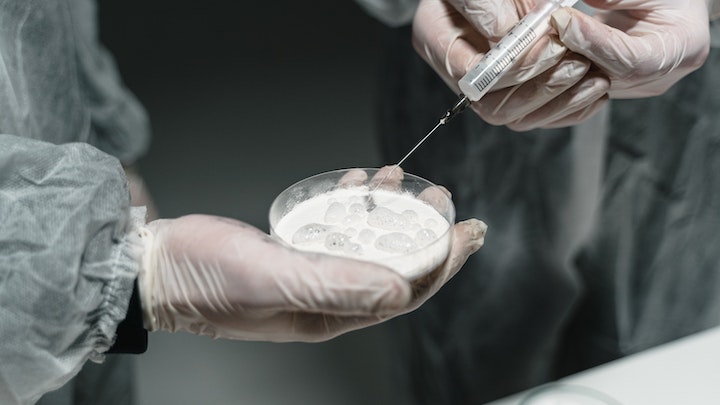Cocaine is an illegal, powerful stimulant that strongly enhances feelings of euphoria, excitement and confidence. Freebasing cocaine is one form of cocaine.
The effect, though, is short-lived and comes with an uncomfortable comedown that could include anxiety, paranoia, insomnia and irritability. [1]
Users generally take a few doses in a row to continue the short-lived high.
Freebasing cocaine allows users to take cocaine in a different way to how you would use powder cocaine. However, freebase cocaine is associated with many more negative and dangerous health risks.

Freebase cocaine is cocaine in its solid form. Freebasing cocaine is the process of freeing cocaine’s base out of its natural salt form. [2]
Freebase cocaine is essentially just turning powdered cocaine into cocaine sulfate. This means the cocaine is extremely potent, almost 100% pure.
You cannot easily melt and inject this form of the drug as it is not soluble in water. Due to its low melting point, it’s easy to smoke.
The main method of using freebase cocaine is with a small glass pipe. The method normally uses a small piece of heavy copper to act as a reduction base, and then the cocaine can be melted and boiled into a vapour to be smoked. [3]
While crack cocaine is created by mixing the original cocaine with water and baking soda, freebase cocaine is produced using ammonia to extract the base.
There is also a different way that you use freebase cocaine and crack cocaine. With freebase cocaine, you are inhaling the vapours, but with crack cocaine, you are directly smoking the drug.
Crack cocaine isn’t as pure as freebase cocaine, due to it being mixed with baking soda. This is why freebase cocaine is much more potent and dangerous. However, crack cocaine is still a very risky drug to use.

The effects of freebasing cocaine are felt almost immediately as it is inhaled by smoking. [4]
Freebase cocaine gets into the body by being absorbed through the lungs’ membranes, which means it can enter the bloodstream and then the brain in around 10-15 seconds.
After it reaches the brain, you will be in a state of extreme euphoria for about 30 minutes. [5]
The high is usually over fast and you will begin to have a comedown. Users will generally have a crash and start to feel anything from depression, anxiety and paranoia, to feeling extremely fatigued and irritable.
This high, though, is what makes cocaine an addictive drug and can cause you to develop a drug addiction.
Due to the potency of freebase cocaine, it causes an increase in dopamine levels. Dopamine is a chemical in your brain that gives you feelings of pleasure.
If you use cocaine regularly, your body gets used to the surge of dopamine and will begin to become unable to function without it.
The short-term physical, common side effects of freebasing cocaine include:
There are also long-term effects associated with long-term freebase cocaine abuse, such as:

There are significant risks attached to using freebase cocaine, especially when you smoke it. You are at risk of developing: [6]
If you use freebase cocaine regularly, you are also at a high risk of addiction.
Due to the high potency of the pure form of cocaine in freebase cocaine, there is a much higher risk of cocaine overdose.
You should call the emergency services and seek help from a medical professional if you or someone you know develops any of the following symptoms and is at risk of overdose:

It is very easy to develop a freebase cocaine addiction due to the high potency of the drug. You are highly likely to feel cocaine withdrawal symptoms when you stop using freebase cocaine.
Cocaine withdrawal tends to produce more psychological withdrawal symptoms than physical withdrawal symptoms as there is a high range of psychological effects that cocaine use can give you. But, they can be extremely intense.
Freebase cocaine withdrawal symptoms generally include:

You can get help for a freebase cocaine addiction today. Here at Rehab 4 Addiction, we can give you support and advice on how to seek rehabilitative care if you feel you are ready.
Our team is highly experienced and we can help get you the treatment you’d like. Treatment can be residential, outpatient or intensive outpatient depending on your needs.
There are currently no specific medications available to help with your cocaine withdrawal, however, the rehab staff will make sure you are as comfortable as possible during this difficult period.
The detox process is the initial step once you enter rehab and involves removing all of the cocaine and its harmful chemicals from your body.
This process can last for around 7-10 days, though this time can also be more depending on your situation.
After your initial detox from cocaine, you can receive any form of therapy to help you with your recovery journey. This can be cognitive behavioural therapy (CBT), motivational interviewing, or even music therapy.
CBT has proven to be the most effective since it can help to build back clean and healthy lifestyle habits that might have been broken by your drug abuse routine.
You will also be given plenty of aftercare, with a relapse prevention plan for after rehab.
The recommended duration of rehab from Rehab 4 Addiction is 28 days. This allows you time to settle into the centre, complete the detox and any therapy you might need, as well as prepare for life outside of rehab again.
Freebassing also has legal implications, as well as the many health consequences. If you are caught buying freebase cocaine or if authorities find some within your possession, then you could face legal consequences.
This is something to also consider when trying to quit freebase cocaine.

Here at Rehab 4 Addiction, our team can help you get the support you need whenever you are ready to look at treatment options.
We can give further advice and support, or find you the best rehab for your needs if you would like.
Our team can put you in touch with rehabilitative help, such as inpatient residential care, outpatient rehab or intensive outpatient care.
Call us today at 0800 140 4690 for further support and advice.
[1] https://www.ncbi.nlm.nih.gov/pmc/articles/PMC6387265/
[2] https://www.ncbi.nlm.nih.gov/pmc/articles/PMC4390014/
[3] https://nida.nih.gov/publications/research-reports/cocaine/what-cocaine
[4] https://www.ncbi.nlm.nih.gov/pmc/articles/PMC3056348/